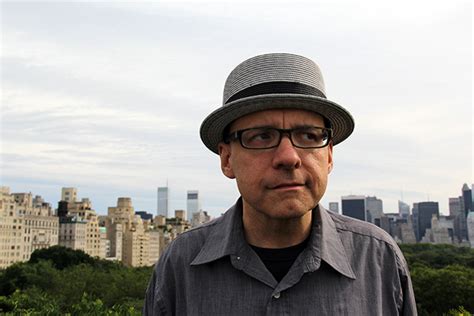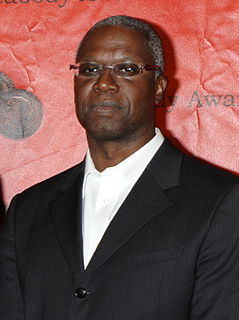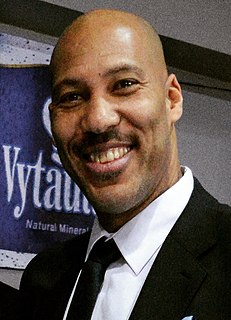A Quote by Walter Cronkite
To say that we are closer to victory today is to believe in the face of the evidence, the optimists who have been wrong in the past. To say that we are mired in stalemate seems the only realistic, yet unsatisfactory, conclusion. It is increasingly clear to this reporter that the only rational way out then will be to negotiate, not as victors, but as an honorable people who lived up to their pledge to defend democracy, and did the best they could.
Related Quotes
Families have always been in flux and often in crisis; they have never lived up to nostalgic notions about "the way things used tobe." But that doesn't mean the malaise and anxiety people feel about modern families are delusions, that everything would be fine if we would only realize that the past was not all it's cracked up to be. . . . Even if things were not always right in families of the past, it seems clear that some things have newly gone wrong.
Whether or not belive in Fate comes down to one thing: who you blame when something goes wrong. Do you think it's your fault - that if you'd tried better, worked harder, it wouldn't have happened? Or do you just chalk it up to circumstance? I know poeple who'll hear about the people who died, and will say that it was God's will. I know people who'll say it was bad luck. And then there's my personal favorite: They were just in the wrong place at hte wrong time. Then again, you could say the same thing about me, couldn't you?
John Kerry tried to work with the Russians on Syria, and the man was honorable, because he was trying to do the right thing, and frankly, playing a very weak hand, a hand that was weak not because of him, okay. He did the best he could, but I will say this to his enormous credit: he never offered a dirty deal. You can have Ukraine if you only help us out on Syria. Never - he never did that.
I'm not one of those people that's to myself and just quiet. I've never been like that, man. I've always been kind of loud. I'm out there, man. I do my thing, but I don't do it disrespectful. But when people rub me the wrong way, I rub people the wrong way. But I say what I say and I mean what I say.
Take the time to make some sense for what you wanna say, And cast your words away upon the waves. Sail them home with acquiesce on a ship of hope today, And as they land upon the shore, Tell them not to fear no more. I'm not saying right is wrong, It's up to us to make the best of all the things that come our way. Cos' everything that's been has past, The answers in the looking glass. There's four and twenty million doors On life's endless corridor, So say it loud and sing it proud today.
If the majority of people said I did something wrong, then I must be wrong, and I will think 'I didn't even mean it like that, why are you treating me like this?' But if a lot of people say that I'm wrong and it's not good, then it must be not good. I will say, 'Okay' and then tell myself that this cannot happen again. I have to grasp it and change it for the better.
If you are offended by reading views that disagree with yours, then yes, you will be offended. However, it is not gratuitously offensive, it simply puts an argument, and if your views are strong enough, as I believe they are, you will be able to defend your views. You will not say, "Oh, it's offensive, it's offensive." You will say "No, you are wrong here and you are wrong here," and that's what you should do.
When you look at any experimental work not directly related to economics, but trying to test rational behavior in other ways, experiments have conspicuously failed to show rational behavior. Macro evidence certainly suggests deviations from rationality, but I don't want to say the rationality hypothesis is completely wrong. If you have any introspective idea or experimental idea about people's behavior, it seems to be incompatible with the really full scale rational expectations.
Did you, too, O friend, suppose democracy was only for elections, for politics, and for a party name? I say democracy is only of use there that it may pass on and come to its flower and fruit in manners, in the highest forms of interaction between people, and their beliefs - in religion, literature, colleges and schools- democracy in all public and private life.
































